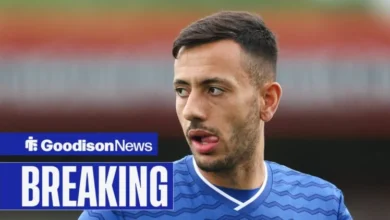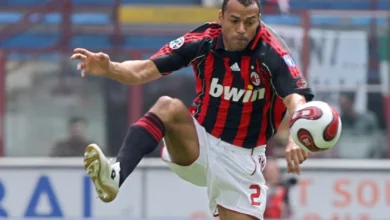VAR overlooked a key detail in the Premier League’s newly released audio of the Everton penalty incident – opinion.
Everton are justified in extending their frustration following the VAR controversy in Saturday’s match.
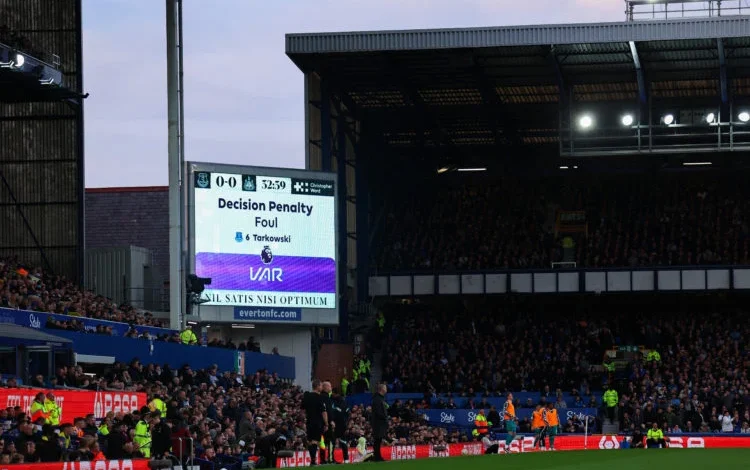
This technology, introduced in the Premier League during the 2019/20 season, has quickly garnered a controversial reputation.
Despite widespread criticism, its integration into the sport is now irreversible.
As a result, both players and fans must come to terms with its presence, hoping that those in charge of its operation will make accurate decisions.
Unfortunately, during Everton’s match against Newcastle United, the technology once again fell short.
Everton fans were left frustrated when their side was denied a penalty late in the game.
After Newcastle had been awarded a first-half penalty—eventually saved by Jordan Pickford—the Toffees felt they were due one of their own as the second half progressed.
The controversy stemmed from an incident involving Dominic Calvert-Lewin, who seemed poised to score after Nick Pope parried his initial effort.
However, Newcastle’s Dan Burn intervened with a desperate challenge.
Burn’s contact with Calvert-Lewin appeared to have brought the striker down, but to the dismay of Everton fans, the decision went against them.
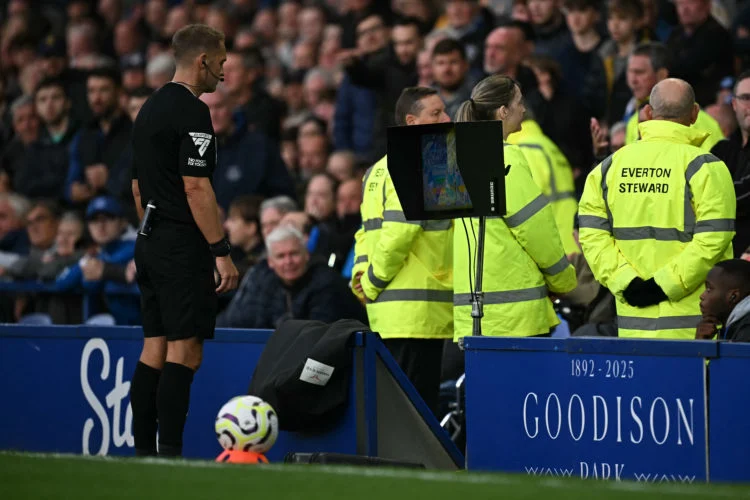
It was ruled that Calvert-Lewin had kicked Burn, and thus, no penalty was awarded.
In an attempt to justify the outcome, the Premier League released the VAR footage from the match.
In the footage, the VAR official informed referee Craig Pawson, “It’s checked and cleared, Craig. Checked and clear. Check complete, check complete.
The defender gets his foot in front, and the attacker kicks the back of the defender. No penalty.”
However, the explanation provided failed to acknowledge a critical detail that could have changed the decision.
VAR overlooked the fact that Burn made no attempt to play the ball during his challenge.
This omission is especially significant given the Premier League’s recent effort to support referees’ decisions and limit interference by VAR.
Yet, in this instance, both the referee and VAR arrived at the same questionable conclusion: that Burn’s challenge was legitimate.
In reality, Burn’s challenge was far from the ball, and his intervention disrupted Calvert-Lewin’s clear scoring opportunity.
Although Calvert-Lewin may have kicked Burn’s leg, the context of the situation should have been considered more carefully.
Burn’s challenge had no intention of playing the ball and instead served only to obstruct the Everton striker.
In such cases, the rules suggest that this should have been deemed a foul, and a penalty awarded.
Adding to the frustration is the fact that many pundits, including Stephen Warnock and Sue Smith, agreed that Everton should have been awarded a penalty.
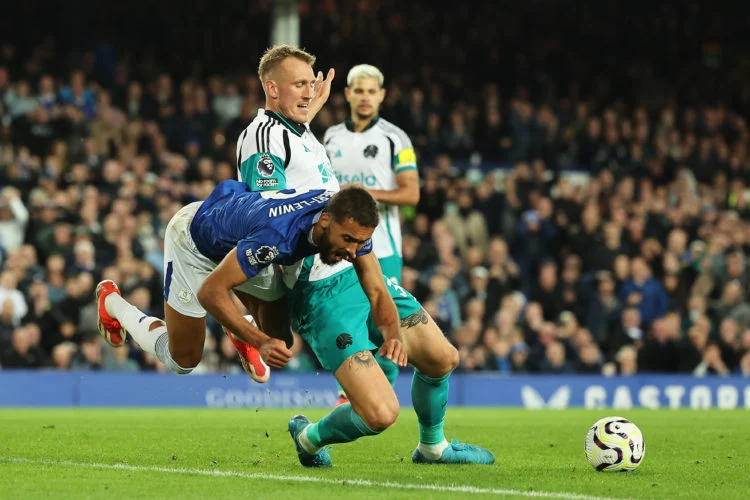
Week by week, decisions like this continue to damage the credibility of both VAR and the Premier League’s officiating standards.
Despite its intended purpose, VAR seems to be causing more harm than good, with many feeling that its presence only deepens controversy.
